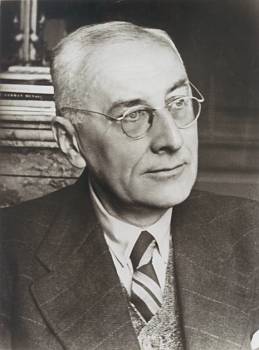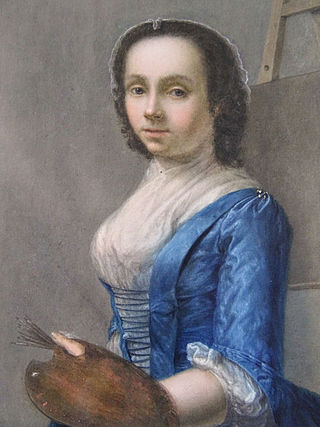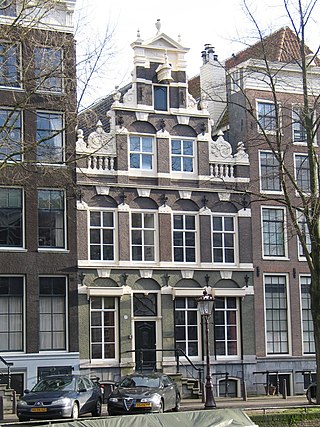
Leiden University is a public research university in Leiden, Netherlands. It was founded as a Protestant university in 1575 by William, Prince of Orange, making it the oldest institution of higher education in the Netherlands.

The Royal Netherlands Academy of Arts and Sciences is an organization dedicated to the advancement of science and literature in the Netherlands. The academy is housed in the Trippenhuis in Amsterdam.

The NIOD Institute for War, Holocaust and Genocide Studies is an organisation in the Netherlands which maintains archives and carries out historical studies into the Second World War, the Holocaust and other genocides around the world, past and present. The institute was founded as a merger of the Netherlands Institute for War Documentation and the Center for Holocaust and Genocide Studies (CHGS).

The Netherlands Institute of International Relations Clingendael or Clingendael Institute is a Dutch think tank and academy on international relations. Based in Wassenaar on the municipal border with The Hague, the institute also publishes Clingendael Magazine 'Spectator', an online monthly on international politics. As of 2012, the institute is organised into two departments: Clingendael Research and Clingendael Academy.

The T.M.C. Asser Instituut is a professional inter-university centre of knowledge and research. The institute carries out research in private and public international law, European law, as well as all other related fields, including international commercial arbitration, international sports law and international humanitarian and criminal law. It was established in 1965 in The Hague and it is affiliated with the University of Amsterdam. Since September 2021 the institute also hosts the Special Chair Arms Control Law.

Nicolaas Wilhelmus Posthumus or N.W. Posthumus was a Dutch economic historian, political scientist, and professor at Erasmus University Rotterdam.

The Dutch Research Council is the national research council of the Netherlands. NWO funds thousands of top researchers at universities and institutes and steers the course of Dutch science by means of subsidies and research programmes. NWO promotes quality and innovation in science. NWO is an independent administrative body under the auspices of the Dutch Ministry of Education, Culture and Science. NWO directs its approximate budget of 1 billion euros towards Dutch universities and institutes, often on a project basis. Also, NWO has its own research institutes and facilitates international cooperation. Current president of NWO since April 1, 2021 is Marcel Levi. Former NWO presidents include Stan Gielen, Peter Nijkamp and Jos Engelen.

The Netherlands Institute for Art History or RKD, previously Rijksbureau voor Kunsthistorische Documentatie (RKD), is located in The Hague and is home to the largest art history center in the world. The center specializes in documentation, archives, and books on Western art from the late Middle Ages until modern times. All of this is open to the public, and much of it has been digitized and is available on their website. The main goal of the bureau is to collect, categorize, and make art research available, most notably in the field of Dutch Masters.
The Biografisch Portaal is an initiative based at the Huygens Institute for Dutch History in Amsterdam, with the aim of making biographical texts of the Netherlands more accessible.

Jkvr. Jeltje de Bosch Kemper was a Dutch feminist.

Elisabeth Geertruida Wassenbergh was an 18th-century painter from the Northern Netherlands.

The Meertens Institute in Amsterdam is a research institute which studies and documents language and culture in the Netherlands as well as Dutch language and culture throughout the world. The institute is part of the Royal Netherlands Academy of Arts and Sciences.
The Rathenau Institute is an organisation in the Netherlands for technology assessment. It is a member of the European Parliamentary Technology Assessment.

Josina Maria "Jozien" Bensing is a Dutch clinical psychologist. Bensing was director of the Nederlands Instituut voor Onderzoek van de Gezondheidszorg (NIVEL) between 1985 and 2008. Since 1993 she has been a professor of clinical and healthcare psychology at Utrecht University. Bensing was a winner of the 2006 Spinoza Prize.

The Zuid-Afrikahuis is a central information point on South Africa and contains the largest library on South Africa in the Netherlands. The institution also organizes literary evenings with writers and poets as well as holding cultural events. It also offers courses on the Afrikaans language. The Zuid-Afrikahuis is home to a number of organizations including: the foundation ZASM, the Nederlands-Zuid-Afrikaanse Vereniging (NZAV), the foundation Stichting Studiefonds, and the Maandblad Zuid-Afrika.

The Royal Netherlands Institute in Rome, founded in 1904 as Nederlands Historisch Instituut te Rome, is a Dutch centre for studies in the Humanities based in Rome. It was awarded the title "Royal" by Queen Beatrix in 2004. The Institute was initially one of several Roman Historical Institutes set up to identify and publish Roman archival documents of national interest, with Gisbert Brom as its first director. Its remit has since been extended to include the study of archaeology, art history, literature, architecture and geography.
The Descartes-Huygens Prize is an yearly scientific prize created in 1995 by the French and the Dutch governments, and attributed to two scientists of international level, a French one chosen by the Koninklijke Nederlandse Akademie van Wetenschappen and a Dutch one chosen by the Académie des sciences, to reward their work and their contributions to the French-Dutch cooperation.

Beatrice A. de Graaf is a Dutch history professor at the Faculty of Humanities at Utrecht University. Her areas of expertise are terrorism, international relations and security and the modern history of Europe.

Franz "Frans" Marius Theodor de Liagre Böhl was a Dutch professor of Assyriology and Hebrew.
![Spinhuis (Amsterdam) [nl] Spinhuis Poort Hendrick de Keyser Spinhuissteeg Amsterdam.JPG](http://upload.wikimedia.org/wikipedia/commons/thumb/e/eb/Spinhuis_Poort_Hendrick_de_Keyser_Spinhuissteeg_Amsterdam.JPG/220px-Spinhuis_Poort_Hendrick_de_Keyser_Spinhuissteeg_Amsterdam.JPG)















